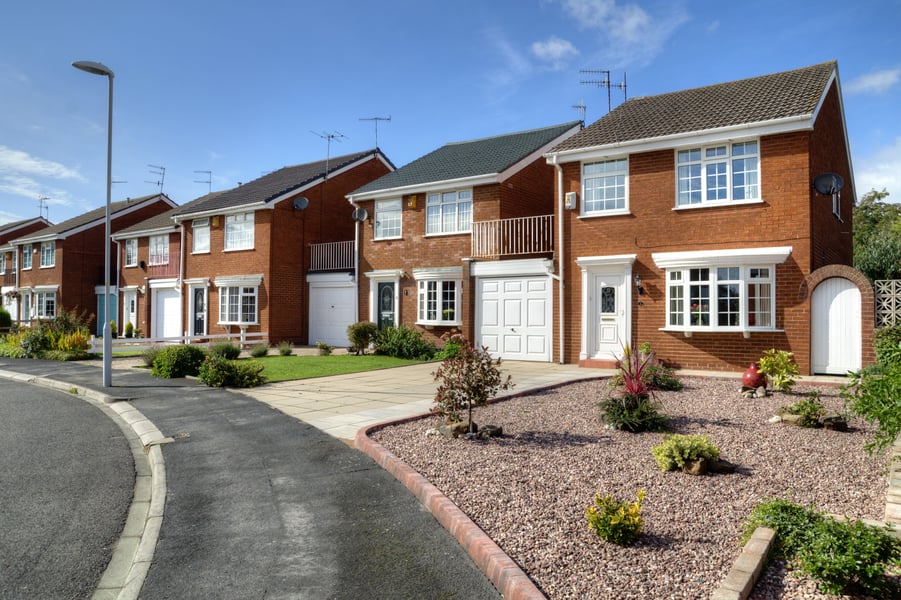It was estimated there were 37,220 starts in Q2.

The number of new build dwelling starts in England has dropped by 8% year-on-year, data from the Ministry of Housing, Communities and Local Government has found.
It was estimated there were 37,220 (seasonally adjusted) starts in Q2, 2% less than Q1.
Joseph Daniels, founder of modular developer Project Etopia, said: “This is a second successive decline in house-building starts and unless there is a swift reversal in fortunes in the final six months of the year, this is going to translate into fewer completions in 2020.
“This serves as a wake-up call to the government which, despite setting grand housebuilding targets, now faces the prospect of watching the industry cut and run from those ambitions, leaving them in tatters.
“House builders are showing signs of succumbing to the property slowdown, and it is evident that the industry has not done enough to plan for this.
“There is still enormous hunger out there for housing, valuations are still healthy by historic standards and there is plenty of buying power thanks to cheap borrowing and buyer incentive schemes.
“However, the industry does not seem capable of ridding itself of the self-defeating, cyclical pattern that has always haunted it.
“Housing policy in Britain is still failing and the people it is failing the most are those desperate to get onto the housing ladder who cannot afford to buy because there is not enough supply.”
Completions were estimated at 45,190, a 4% increase from the previous quarter and 11% higher than a year ago.
Annual new build dwelling starts totalled 160,640 in the year to June, 1% lower year-on-year. During the same period, there were 173,660 completions, an increase of 8% compared with last year.
In Q2 new build dwelling starts from private enterprises and housing associations both dropped from the previous quarter, by 2% and 4% respectively.
Michael Stone, founder and chief executive of Stone Real Estate, added: "On thesurface, these latest numbers are extremely encouraging and tell a positive story in so far as overall new homes supply with house builders delivering on 11% more than a year ago.
“This is no mean feat given current political headwinds and economic uncertainty and is surely testimony to our teflon-like aspirations as a property owning nation.
“In particular, affordable homes have seen a big spike in completions and this has to be warmly welcomed given that this is where the biggest deficit in housing provision lies.
“However, celebrations at solving the bottle-neck of housing supply will be short-lived if the downturn in 'starts' is not reversed in thenext set of numbers.
“These latest MHCLG numbers point to a reduction in dwellings started of 2% quarterly and 8% year on year.
“This is no seasonal blip and our housebuilder friends and local authorities alike will need to work hard to dig-down, literally, in order to ensure that the positive trend in housing supply continues to come close to meeting demand."
Housing Secretary Robert Jenrick MP was pleased with the figures showing 173,660 new homes were built for the year ending June 2019, up 8% year-on-year.
He said: “The data released today is hugely welcome, with the number of new homes built reaching an 11-year high.
“We are moving in the right direction, but there is still much more to do if we are going to deliver the numbers needed by communities up and down the country.
“I’m determined to deliver homes that are high-quality, well designed and good for the planet.
“Faster and simpler planning regulations will help us reach that goal, which is why I have announced measures to accelerate planning decisions for homes and reduce the use of unnecessary conditions by up to a third, freeing up developers so they can get on and build in a locally appropriate way.”
However, Jamie Johnson, chief executive ofFJP Investment, added: “Regardless of the positive spin the government might try and put on these new figures, they are still well, well short of the number required – in fact, it’s approximately half the number that’s needed if we are to address the housing crisis.
“Importantly, not only do we need more homes to be constructed, but we also need to focus on the quality and attractiveness of new-builds.”



